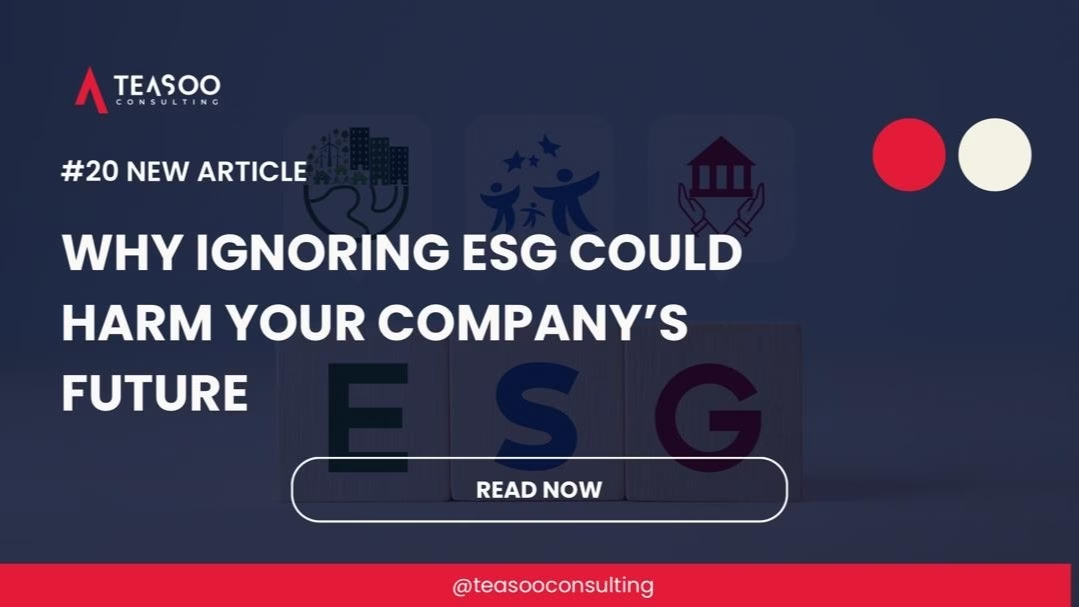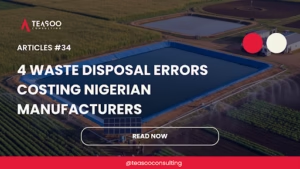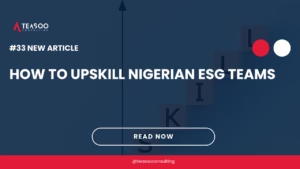#20 Why Ignoring ESG Could Harm Your Company’s Future – And Why Your Business Can’t Afford to Wait

In late 2020, a Kenyan agricultural firm, Kakuzi PLC, saw major UK supermarket chains, including Tesco, suspend purchases following reports of human rights abuses and community conflict. Allegations of assault, rape, and forced evictions were linked to its security operations. In response, European buyers pulled their contracts, demonstrating how ESG failures can translate into immediate commercial losses.
This was not an isolated incident; it was a wake-up call. Across Africa, ESG is no longer optional. It is now a business imperative, with direct consequences for access to capital, compliance, reputation, resilience, and trust.
But why do many African businesses still hesitate? For some, ESG feels like a costly distraction in the face of immediate financial pressures. For others, the barriers are limited awareness, lack of technical expertise, or weak regulatory enforcement. These hurdles are real, but ignoring ESG only compounds risks and costs in the long run.
Here are four reasons why overlooking ESG could harm your company’s future, and how you can stay ahead.
1. Capital and Commercial Access are at Stake
African markets are increasingly tied to global ESG expectations, and lenders and investors, especially development finance institutions, screen for ESG performance before committing resources. An ESG failure, especially one exposed publicly or through whistleblower media coverage, can lead to swift loss of contracts, consumer backlash, and regulatory scrutiny.
Kakuzi’s case vividly illustrates how ESG revelations can lead to immediate loss of business opportunities, disrupting commercial viability and reputational credibility.
Secure your future: Build robust ESG disclosures to attract and retain capital.
2. Regulatory Momentum Is Accelerating
African governments are rapidly adopting ESG disclosure rules such as the IFRS S1/S2. Businesses that ignore this shift or delay in ESG integration risk sudden non-compliance or being caught unprepared when regulations tighten.
As Africa’s role as a source of critical minerals keeps growing, it means ESG considerations now play a central role in investor decisions, compliance, and community relations
Secure your future: Stay ahead by monitoring policy trends and embedding ESG compliance into your reporting cycle.
3. Reputation Is Your Social License to Operate
Consider the tragic events at the Simandou iron-ore project in Guinea, which is being developed by Rio Tinto and its partners. Between June 2023 and November 2024, more than a dozen workers died, and safety protocols were reportedly neglected in pursuit of schedule and budget goals. Investigations revealed shocking lapses in equipment maintenance, emergency response, and medical preparedness.
Ignoring ESG can turn operational risks into reputational disasters. Greenwashing is just as risky as neglect, labour rights violations, or governance lapses can spark consumer backlash and erode trust, exposing companies to financial and legal liabilities.
Secure your future: Prioritise transparency and accountability in your ESG communications and actions. Back claims with verifiable data, independent audits, and consistent reporting to demonstrate a genuine commitment.
4. Operational Risks Multiply Without ESG
For African businesses, ESG is not abstract; it directly reflects daily realities. The “S” (social) and “E” (environmental) capture risks that hit both communities and companies.
Take MTN Nigeria’s 2015 crisis: a $5.2 billion fine for failing to deactivate unregistered SIM cards. Beyond governance lapses, this was a social trust failure, a security risk that eroded public confidence and dented MTN’s market value. Similarly, the June 2024 Aiteo oil spill at Nembe Creek highlighted how a lapse in equipment maintenance and environmental negligence can halt operations, damage communities, and trigger costly shutdowns.
Secure your future: Integrate ESG principles into governance, social engagement, and environmental stewardship not as an afterthought, but as a foundation for resilience.
These examples show that ignoring ESG amplifies operational risks, regulatory penalties, social unrest, environmental damage, and financial losses, putting business continuity at serious risk. African companies must embed ESG in risk management to build resilience and secure their futures.
The Bottom Line
In Africa’s fast-changing business climate, ESG is not a “nice to have.” It is non-negotiable. It is survival. It is growth. It is your ticket to capital, competitiveness, and credibility.
At Teasoo Consulting, we help organizations move beyond box-ticking and PR, embedding ESG into strategy and unlocking long-term value.
The real question is not “should we prioritize ESG?”, but “can we afford not to?”
What are your company’s biggest ESG challenges? Share your thoughts in the comments or reach out to us at Teasoo Consulting to explore how we can support your ESG journey.






